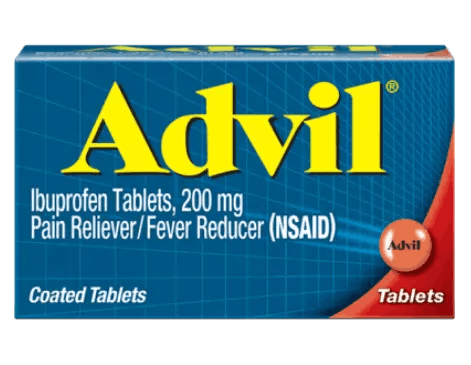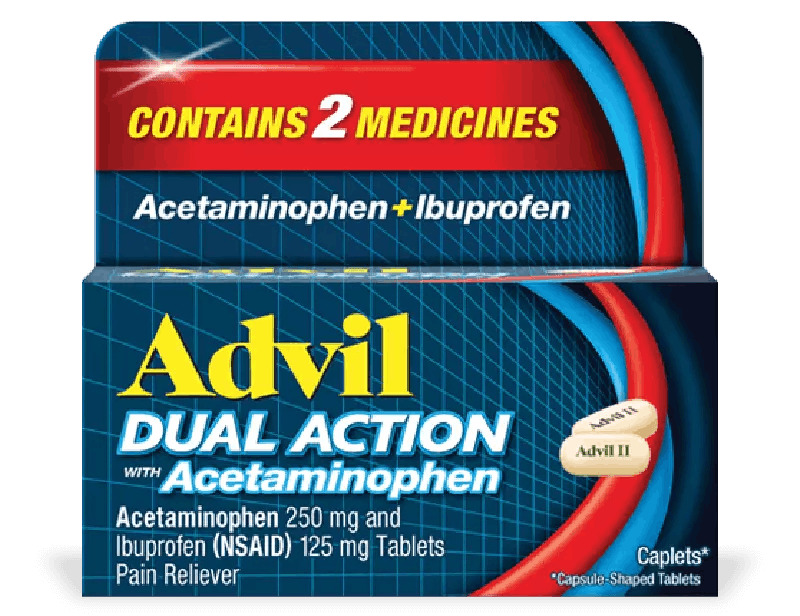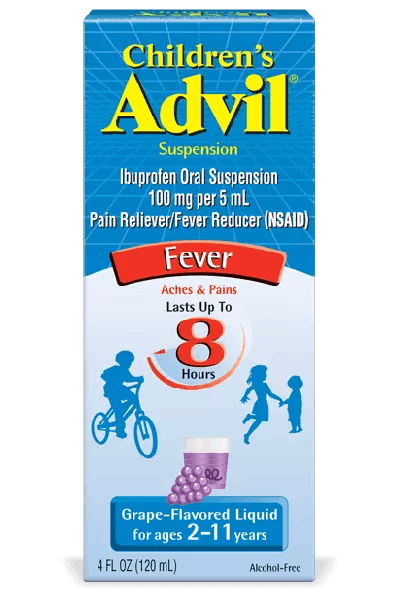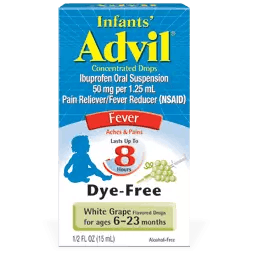
Potential Health Effects of Taking Advil
In overdose situations, Advil is the safest. Ibuprofen has the lowest toxicity of all over-the-counter pain medications. Due to its wide therapeutic margin and low toxicity profile, serious overdose situations or instances of death are rare.
Is Advil toxic?
When used as directed, ibuprofen, the active ingredient in Advil, is a safe and effective OTC pain reliever and fever reducer.
Can you overdose on Advil?
When used as directed, Advil is the safest in overdose situations. Signs of overdose are known to occur at 40x the maximum daily dose (1200mg). This low toxicity profile makes Advil a safe and effective pain reliever for multiple aches and pains.
What happens if you overdose on Advil?
If you overdose on Advil call your doctor immediately or contact the Poison Help line at 1-800-222-1222.
Instances of overdose are extremely rare with Advil. However, symptoms of overdose include GI disturbances, kidney failure, and a slowing down of your central nervous system. They typically appear within 4 hours but are largely reversible and have a low risk of long-term effects.
Patients experiencing prolonged, severe or life-threatening overdose symptoms.
In overdose situations, Advil is the safest. Ibuprofen has the lowest toxicity of all over-the-counter pain medications. Due to its wide therapeutic margin and low toxicity profile, serious overdose situations or instances of death are rare.
Is Advil toxic?
When used as directed, ibuprofen, the active ingredient in Advil, is a safe and effective OTC pain reliever and fever reducer.
Can you overdose on Advil?
When used as directed, Advil is the safest in overdose situations. Signs of overdose are known to occur at 40x the maximum daily dose (1200mg). This low toxicity profile makes Advil a safe and effective pain reliever for multiple aches and pains.
What happens if you overdose on Advil?
If you overdose on Advil call your doctor immediately or contact the Poison Help line at 1-800-222-1222.
Instances of overdose are extremely rare with Advil. However, symptoms of overdose include GI disturbances, kidney failure, and a slowing down of your central nervous system. They typically appear within 4 hours but are largely reversible and have a low risk of long-term effects.
Patients experiencing prolonged, severe or life-threatening overdose symptoms.
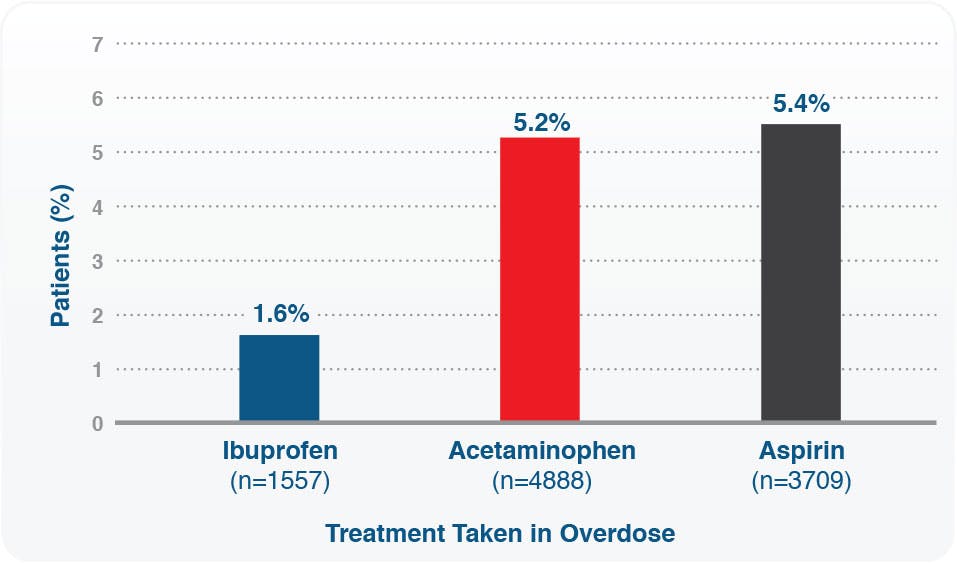
How many Advil should I take?
It depends. For most Advil products you can take 1 capsule/tablet every 4 to 6 hours. For Advil Migraine take 2 capsules with a glass of water every 24 hours. Click on a product link below to learn more.
Can I take ibuprofen instead of opioids?
Yes. Ibuprofen, like Advil, is a safe and effective non-addictive alternative to opioids. Unlike opioids, Advil is non-habit forming—making it a safe and effective solution for those who want to treat their pain without the risk of forming a drug habit. NSAIDs, like Advil, block chemicals at the site of pain. Opioids, on the other hand, work on receptors in the brain to block the transmission of pain and promote feelings of well-being, which make them addictive.
Can I use Advil if I’m taking opioid medication?
It's best to talk to your doctor about combining Advil with opioids since there's possibility for drug interaction, as some opioid medications contain other pain relievers that may interact with Advil.
It’s important to know that studies show that taking ibuprofen (Advil) can reduce the amount of opioids needed for pain relief, and in some cases they’re even prescribed together.
By clicking the link(s) above, you will be taken to an external website that is independently operated and not managed by Haleon. Haleon assumes no responsibility for the content on the website. If you do not wish to leave this website, do not click on the links above.
